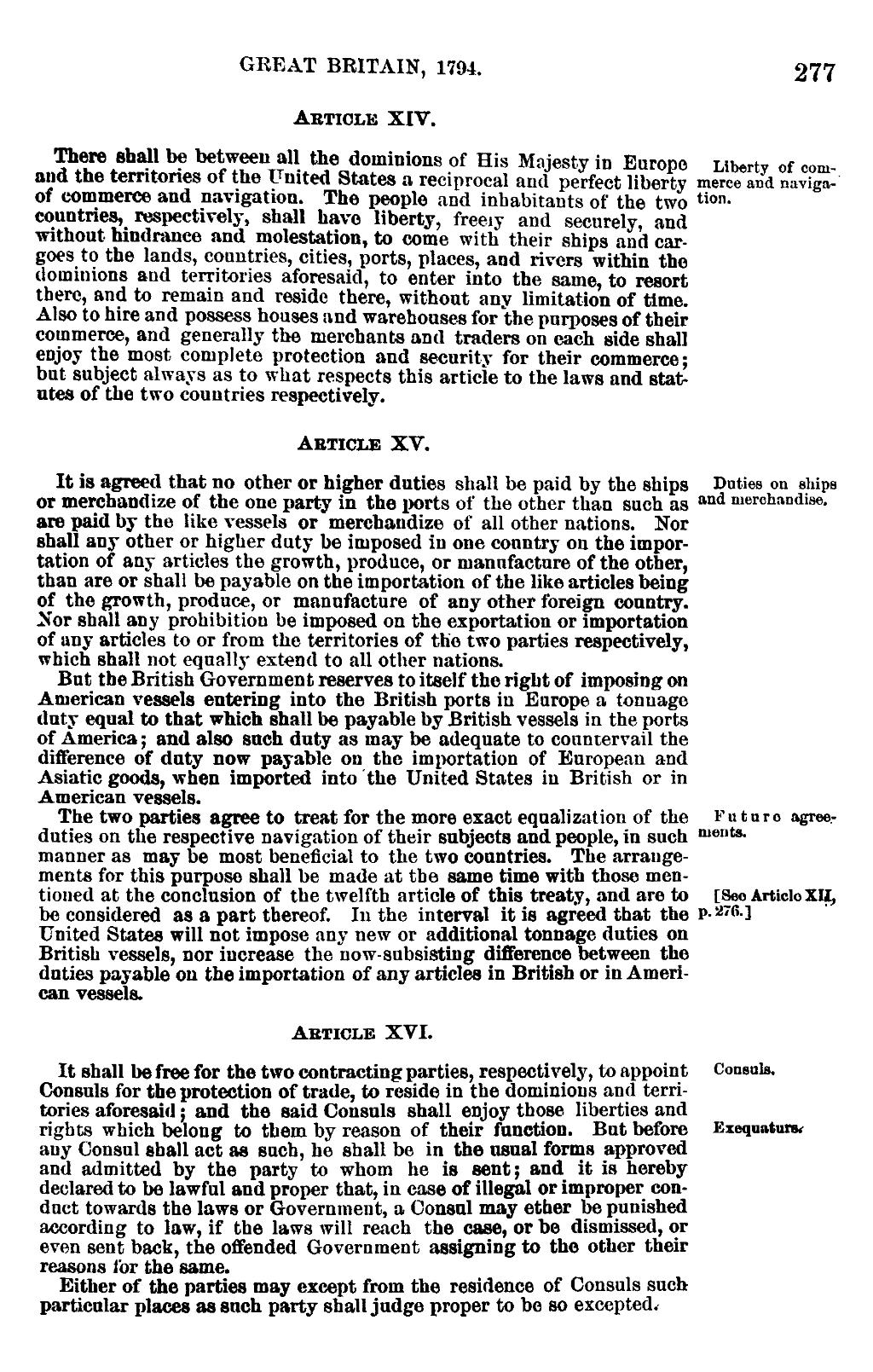GREAT BRITAIN, 1794. 277 Anrrorn XIV. There shall be between all the dominions of His Maest in - and the territories of the United States a reciprocal and] peifectlibgilgy mghgeaiiri of commerce and navigation. The people and inhabitants of the two *l°“· couutries, respectively, shall have liberty, freely and securely, and without hindrance and molestation, to come with their ships and cargoes to the lands, countries, cities, ports, places, and rivers within the dominions and territories aforesaid, to enter into the same, to resort there, and to remain and reside there, without any limitation of time. Also to hire and possess houses and warehouses for the purposes of their commerce, and generally the merchants and traders on each side shall enjoy the most complete protection and security for their commerce; but subject always as to what respects this article to the laws and statutes of the two countries respectively. ARTICLE XV. It is agreed that no other or higher duties shall be paid by the ships Duties cu ships or merchandize of the one party in the ports of the other than such as ““d “"”`°""“d’“°· are paid by the like vessels or merchandize of all other nations. Nor shall any other or higher duty be imposed in one country on the importation of any articles the growth, produce, or manufacture of the other, than are or shall be payable on the importation of the like articles being of the growth, produce, or manufacture of any other foreign country. N or shall any prohibition be imposed on the exportation or importation of any articles to or from the territories of the two parties respectively, which shall not equally extend to all other nations. But the British Government reserves to itself the right of imposing on American vessels entering into the British ports in Europe a tonnage duty equal to that which shall be payable by British vessels in the ports of America; and also such duty as may be adequate to countervail the difference of duty now payable on the importation of European and Asiatic goods, when imported into'the United States in British or in American vessels. The two parties agree to treat for the more exact equalization of the Fu ture agree duties on the respective navigation of their subjects and people, in such '“““°’· manner as may be most beneficial to the two countries. The arrangements for this purpose shall be made at the same time with those mentioned at the conclusion of the twelfth article of this treaty, and are to [Sec Article Xl}, be considered as a part thereof. In the interval it is agreed that the P- 2*6-] United States will not impose any new or additional tonnage duties on British vessels, nor increase the now-subsisting difercuce between the duties payable ou the importation of any articles in British or in Amerimn vessels. Amrrcnn XVI. It shall be free for the two contracting parties, respectively, to appoin_t C<>¤¤¤l¤· Consuls for the protection of trade, to reside in the domimons and territories aforesaid; and the said Consuls shall enjoy those liberties and rights which belong to them by reason of their function. But before E¤¤q¤=•t¤¤‘¤¤ any Consul shall act as such, he shall be in the usual forms approved and admitted by the party to whom he is sent; and it is hereby declared to be lawful and proper that, in case of illegal or improper conduct towards the laws or Government, a Consul may ether be punished according to law, if the laws will reach the case, or be dismissed, or even sent back, the offended Government assigning to the other their reasons lor the same. Either of the parties may except from the residence of Consuls such particular places as such party shall judge proper to be so excepted.-
